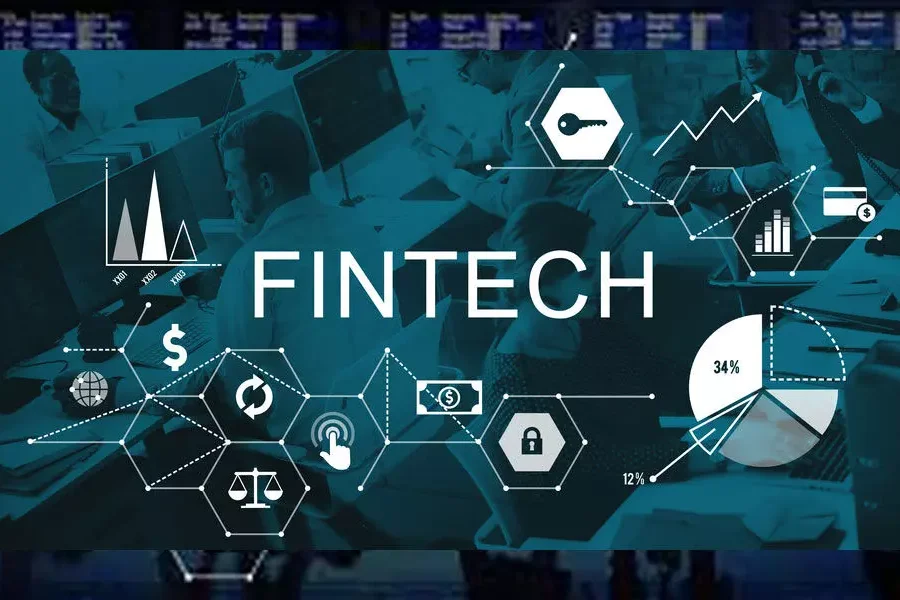Fintech Revolution: How Technology is Disrupting the Financial Industry

Fintech Revolution
The financial industry has been undergoing a massive transformation in recent years, thanks to the fintech revolution. Advances in technology have made it possible for startups to disrupt traditional financial institutions and offer innovative services that cater to consumers’ changing needs. From mobile payments and online banking to digital currencies and robo-advisors, technology is changing the way we manage our money. As a highly skilled assistant who specializes in digital marketing, I have seen firsthand how fintech companies are leveraging technology to create compelling content that attracts and retains customers. In this article, we will explore how the fintech revolution is disrupting the financial industry and discuss some of the key trends shaping the future of finance. Whether you are a consumer looking for new ways to manage your money or a business owner seeking to stay ahead of the curve, this article will provide valuable insights into the fintech revolution.
What is Fintech?
Fintech, short for financial technology, refers to the use of technology to improve financial services. Fintech companies leverage technology to create innovative products and services that are faster, cheaper, and more convenient than traditional financial institutions. The term fintech can refer to a wide range of companies, including startups, established financial institutions, and technology companies.
Fintech companies use a variety of technologies to improve financial services. These technologies include artificial intelligence, machine learning, blockchain, and the internet of things. By leveraging these technologies, fintech companies are able to create products and services that are more user-friendly, more efficient, and more secure than traditional financial services.
History of Fintech
Fintech has been around for decades, but it wasn’t until the early 2000s that the term fintech began to gain popularity. The rise of the internet and mobile devices provided the perfect platform for fintech companies to disrupt the financial industry.
One of the earliest examples of fintech was online banking. In the late 1990s, online banking began to gain popularity as banks started offering their customers the ability to access their accounts online. This was a major breakthrough as it allowed customers to check their balances, transfer funds, and pay bills from the comfort of their homes.
Another early example of fintech was PayPal. Founded in 1998, PayPal made it possible for people to send and receive money online. This was a major breakthrough as it allowed people to make payments without having to use a credit card.
Fintech and the Financial Industry
Fintech is disrupting the financial industry by offering innovative products and services that are faster, cheaper, and more convenient than traditional financial services. Fintech companies are able to do this by leveraging technology to automate processes, reduce costs, and improve the customer experience.
One of the biggest ways fintech is disrupting the financial industry is through mobile payments. Mobile payments allow people to make payments using their mobile devices, eliminating the need for cash or credit cards. This is a major breakthrough as it allows people to make payments anytime, anywhere.
Another way fintech is disrupting the financial industry is through online lending. Online lending platforms allow people to borrow money online, eliminating the need to go to a bank. This is a major breakthrough as it allows people to access credit quickly and easily.
Fintech Trends and Statistics
Fintech is one of the fastest-growing industries in the world. According to a report by KPMG, global fintech investment reached 50.8 billion in 2017. This represents a 120% increase in investment in just one year.
One of the biggest fintech trends is the use of artificial intelligence and machine learning. Fintech companies are using these technologies to improve customer service, automate processes, and reduce fraud.
Another fintech trend is the rise of digital currencies. Digital currencies, such as Bitcoin and Ethereum, are becoming increasingly popular as people look for alternatives to traditional currencies. Digital currencies are decentralized, meaning they are not controlled by any government or financial institution.
Advantages of Fintech for Businesses and Consumers
Fintech has many advantages for businesses and consumers. For businesses, fintech can help reduce costs, improve customer service, and increase revenue. For consumers, fintech can help improve financial literacy, increase access to credit, and improve the overall customer experience.
One of the biggest advantages of fintech for businesses is the ability to automate processes. Fintech companies can use technology to automate processes such as loan underwriting, risk assessment, and customer service. This can help businesses reduce costs and improve efficiency.
Another advantage of fintech for businesses is the ability to offer innovative products and services. Fintech companies are able to create products and services that are tailored to the needs of their customers, which can help businesses attract and retain customers.
For consumers, fintech can help improve financial literacy. Fintech companies are able to create educational content that can help people better understand their finances. This can help people make better financial decisions and improve their overall financial health.
Disadvantages of Fintech
While fintech has many advantages, there are also some disadvantages to consider. One of the biggest disadvantages of fintech is the potential for fraud. Fintech companies are often targeted by hackers and other cybercriminals, which can put customer data at risk.
Another disadvantage of fintech is the potential for job loss. Fintech companies are able to automate many processes, which can lead to job loss in the financial industry. This can be a major concern for people who work in the financial industry.
Fintech and Traditional Banking
Fintech is disrupting traditional banking by offering innovative products and services that are faster, cheaper, and more convenient than traditional banking services. Traditional banks are responding to this disruption by investing in fintech companies and developing their own fintech products and services.
One of the biggest ways fintech is disrupting traditional banking is through online banking. Online banking allows people to access their accounts online, eliminating the need to go to a bank. This is a major breakthrough as it allows people to manage their finances anytime, anywhere.
Another way fintech is disrupting traditional banking is through digital currencies. Digital currencies are becoming increasingly popular as people look for alternatives to traditional currencies. Traditional banks are responding to this trend by investing in blockchain technology and developing their own digital currencies.
Fintech Investing
Fintech investing is a growing trend as investors look for opportunities to invest in the fintech industry. Fintech companies are attractive to investors because they have the potential for high returns and are often able to disrupt traditional financial institutions.
One of the biggest fintech investing trends is the rise of robo-advisors. Robo-advisors are automated investment platforms that use algorithms to create investment portfolios. Robo-advisors are becoming increasingly popular as people look for low-cost investment options.
Another fintech investing trend is the rise of crowdfunding. Crowdfunding allows people to invest small amounts of money in startups and emerging companies. This is a major breakthrough as it allows people to invest in companies that they believe in, even if they don’t have a lot of money to invest.
Future of Fintech
The future of fintech is bright as technology continues to advance and consumers’ needs continue to change. Fintech companies will likely continue to disrupt traditional financial institutions and offer innovative products and services that cater to consumers’ changing needs.
One of the biggest trends in the future of fintech is the use of blockchain technology. Blockchain technology has the potential to revolutionize the financial industry by making transactions faster, cheaper, and more secure.
Another trend in the future of fintech is the rise of digital currencies. Digital currencies are becoming increasingly popular as people look for alternatives to traditional currencies. Digital currencies have the potential to disrupt traditional financial institutions and change the way we think about money.
Conclusion
The fintech revolution is disrupting the financial industry and offering innovative products and services that cater to consumers’ changing needs. From mobile payments and online banking to digital currencies and robo-advisors, technology is changing the way we manage our money. Fintech has many advantages for businesses and consumers, but there are also some disadvantages to consider. As technology continues to advance and consumers’ needs continue to change, the future of fintech looks bright.









